Last Updated August 21, 2024
Self-healing vinyl wraps are amazing because they don’t just protect car paint against scratches, rock chips, and road debris — they can also self-heal fine scratches and swirl marks.
The self-healing process is activated by heat and causes the wrap to “bounce back” from fine scratches. Let’s explore how self-healing vinyl wraps and self-healing paint protection films (PPF) work and their benefits.
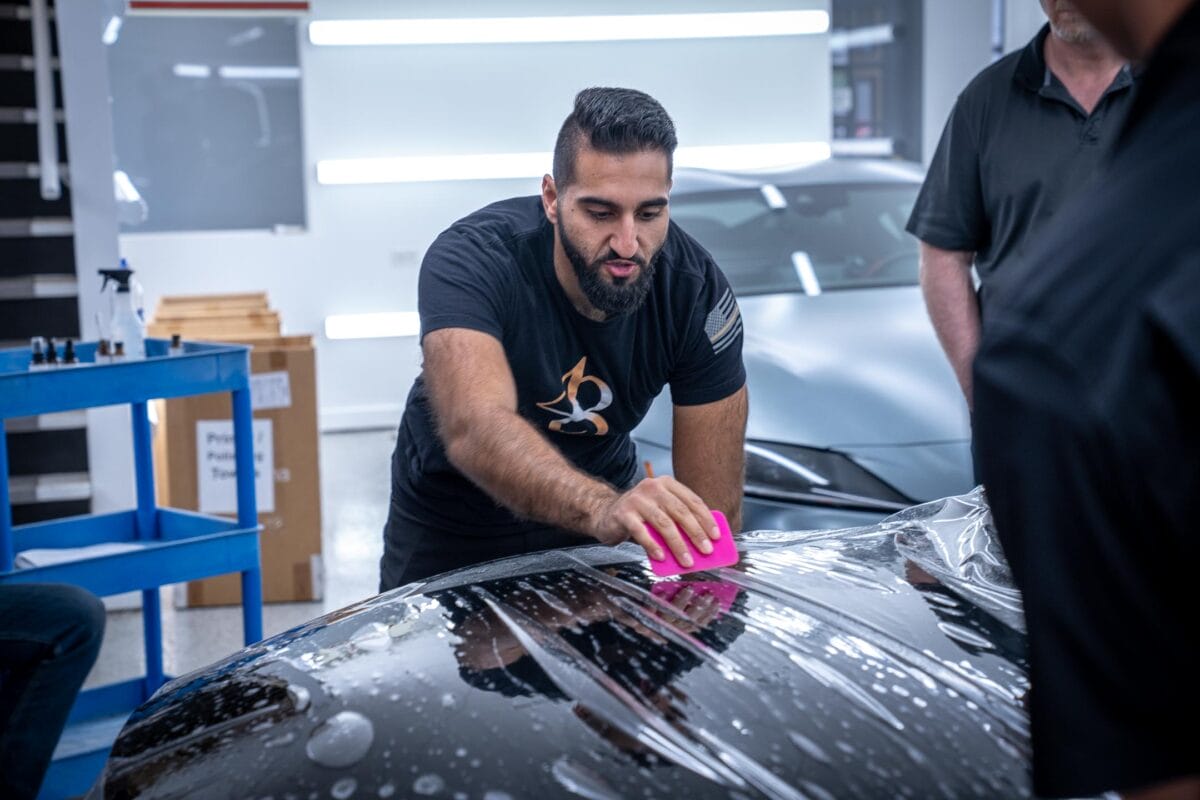
Are All Vinyl Wraps Self-Healing?
Not all vinyl wraps are self-healing. Many still use older materials that don’t “bounce back” from scratches in the vinyl. Make sure you check with the installer or the manufacturer of the vinyl wrap to be certain whether your vinyl wrap is self-healing.
What Are Self-Healing Vinyl Wraps Made Of?
Self-healing vinyl wraps are made of thermoplastic polyurethane (TPU). This material allows the wrap to recover from minor scratches, fine scratches, and light scratches by returning to its original state with a light heat application from sources like a heat gun or warm water.
How Self-Healing Vinyl Wraps Work
Self-healing vinyl wraps work by heat activation. The sun or a heat gun raises the temperature of the thermoplastic material, which causes the elastomers in the vinyl wrap to become pliable, slowly reflowing back to their original shape.
The heat source doesn’t matter. Whether it’s from the warmth of ambient temperatures, sunlight, or the application of warm water, the film’s surface repairs itself, erasing the damage.
For car owners, this means that everyday hazards like tree sap, bird droppings, and acid rain are less likely to leave lasting marks. Even more, swirl marks can be reduced or eliminated thanks to the wrap’s scratch resistance and self-healing properties.
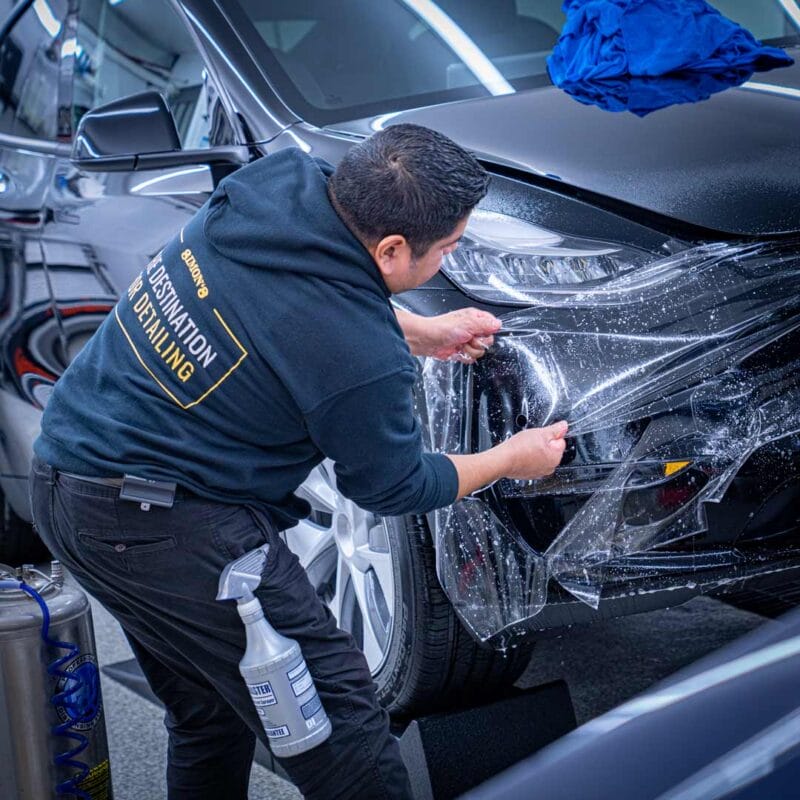
The Benefits of Self-Healing Vinyl Wraps and PPF
- Durability and Protection: Self-healing wraps and self-healing paint protection films (PPF) are designed to offer a superior level of protection. The TPU materials used in these wraps are highly resistant to sharp objects, rock chips, and road debris, which can otherwise damage your vehicle’s paintwork. This protection extends to vulnerable areas like front fenders and door handles, which are prone to damage in everyday driving.
- UV Resistance and Stain Resistance: UV exposure can fade the paint color of a vehicle over time. However, self-healing wraps come with UV resistance, which protects the vehicle’s surface from UV rays and UV damage. In addition, these wraps are stain resistant, preventing substances like tree sap and bird droppings from leaving permanent marks. This stain resistance ensures the look of your vehicle remains intact.
- Easy Maintenance: Car owners will appreciate that maintaining the pristine condition of their vehicle becomes much easier with a self-healing wrap. Small blemishes can often be healed with the application of warm water, eliminating the need for expensive touch-ups or repainting.
- Aesthetic Appeal: Self-healing PPF films like XPEL Ultimate and XPEL Stealth offer a high gloss or matte paint finish, depending on your preference. These high-quality PPF options are designed to be almost invisible, thanks to their high transparency, and they preserve the original paint and clear coat of the vehicle. Whether you want a gloss finish or a more subdued matte paint look, self-healing wraps can cater to different visual renderings while maintaining the color of your car.
- Long-Term Savings: While self-healing wraps and premium PPF options like XPEL Stealth and XPEL Ultimate may have a higher initial cost, they can save car owners money in the long run by reducing the need for paint chips repairs, touch-ups, or even complete wrap jobs.
Comparing Self-Healing Vinyl Wraps with Ceramic Coatings
Ceramic coatings have also become popular for protecting a car’s paint, offering scratch resistance, stain resistance, and protection from harsh chemicals. However, while ceramic coatings provide a durable protective layer for interior surfaces and exterior paint, they lack the self-healing properties of PPF films.
For car owners seeking a more proactive solution to minor scratches and fine scratches, self-healing vinyl wraps offer a more comprehensive option, especially in harsh environments. An even better solution? Protecting the vinyl wrap or PPF with a ceramic coating designed for film! These ceramic coatings are designed to work with the self-healing properties of the vinyl wrap.
The Future of Self-Healing Wraps
The development of self-healing technology continues to push the boundaries of what’s possible in vehicle protection. The industry is witnessing more innovations, from advanced TPU materials with increased tensile strength and heat resistance to PPF films with improved UV resistance. Brands like XPEL and Eastman Performance Films are leading the charge, offering high-quality PPF that balances aesthetics and protection.
Whether it’s the original appearance of windows, rotor blades, or clear bra protection for vehicles, self-healing PPF and wraps represent the future of vehicle protection. With these products, car owners can enjoy both customer satisfaction and a vehicle that remains in pristine condition for a long time.

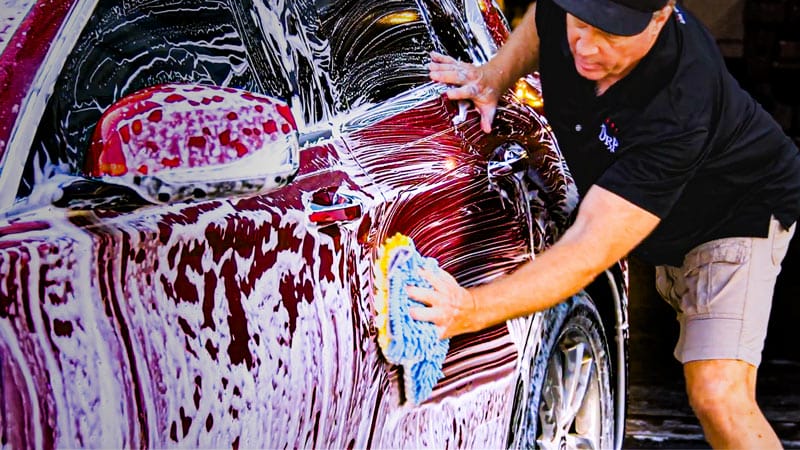

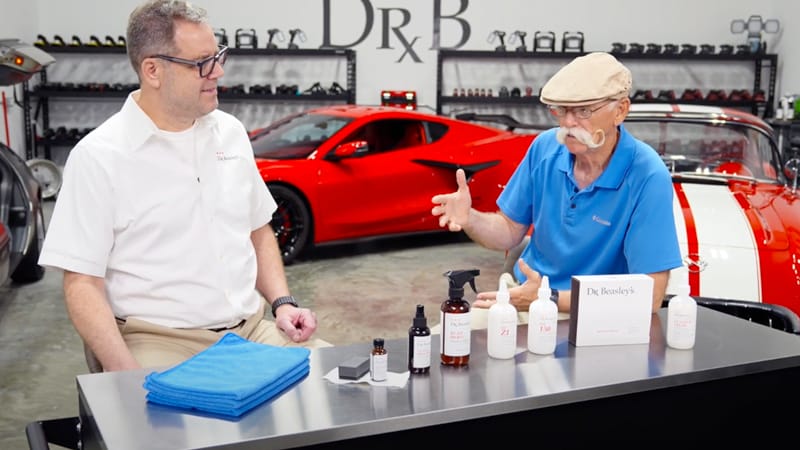
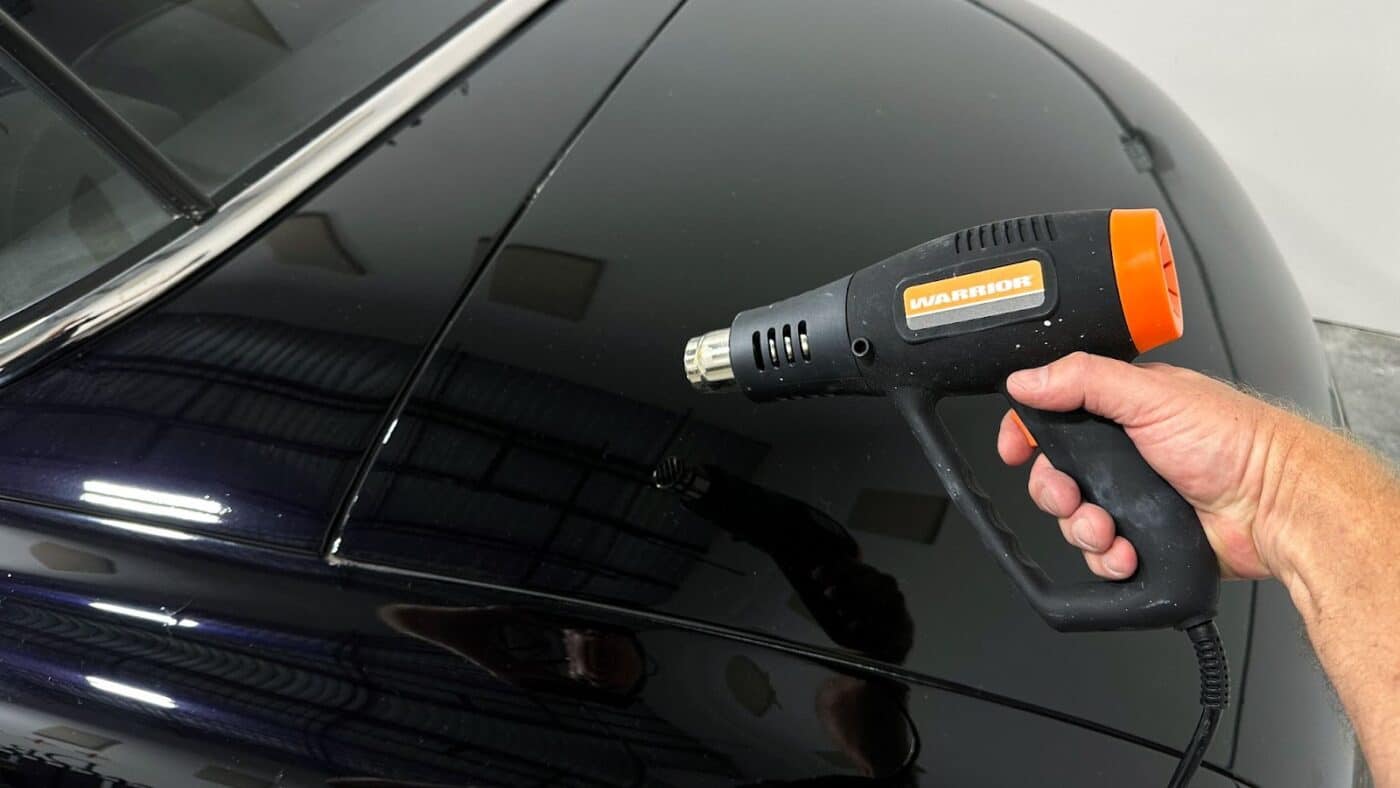
Hey guys I just got a new Porsche Turbo S in Black. I must wrap it with either a clear coat or preferably a carbon fiber coat. Do they all protect the same
Hi Isaac, not all PPF and vinyl are created equal, so best to refer to manufacturer specifications or your local Authorized Detailer.
Nice Article…Very interesting to read this article. I have learned some new information. Thanks for sharing.